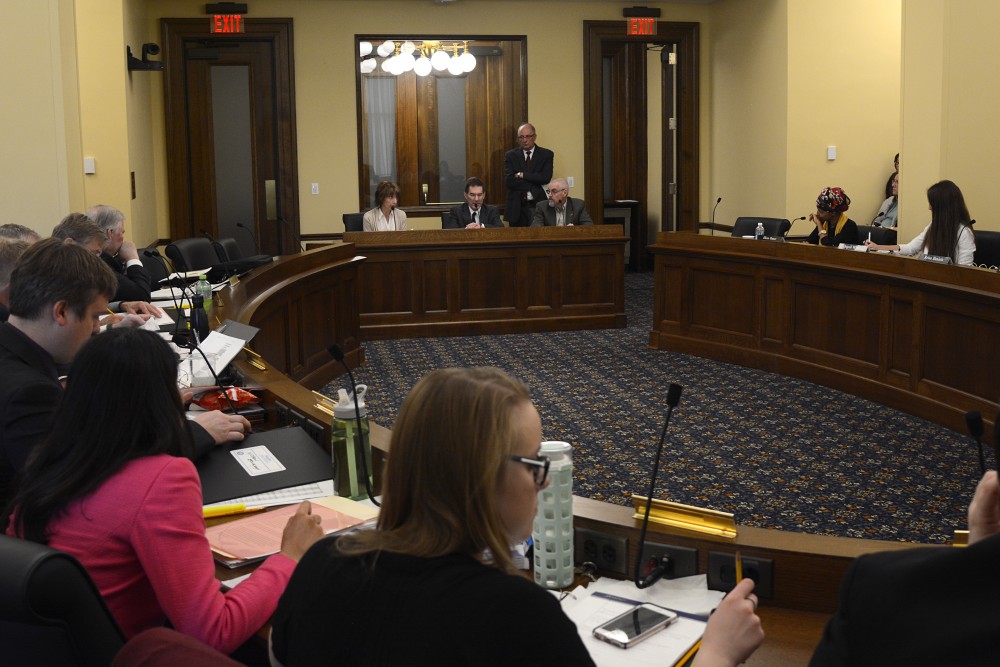Tuition hikes and program cuts may be in store for the University of Minnesota if state lawmakers don’t boost proposed funding.
Members of the Minnesota House and Senate higher education committees held a conference committee meeting Tuesday to hear testimony on higher education spending bills. At the meeting, school and state officials said the current proposals would have negative impacts.
The conference committee must resolve spending and policy differences between the two bills before sending a final combined version to Gov. Mark Dayton.
The University asked the Legislature for a $147.2 million budget increase this session, but current House and Senate omnibus bills would only fund up to $29.6 million of that request.
Rochester campus Chancellor Stephen Lehmkuhle, who spoke on behalf of University President Eric Kaler at the meeting, said the current proposals would have system-wide consequences.
“The lack of funding could lead to tuition increases as high as 5 percent, including increases for all students on all campuses,” he said.
University programs will also see cuts if funding isn’t raised, Lehmkuhle said.
Rep. Ilhan Omar, DFL-Minneapolis, asked University officials at the meeting if the school could dip into its endowment or reserve funds to compensate for decreased state investment.
But Julie Tonneson, University associate vice president for budget and finance, said money received from donors is typically earmarked for specific uses like student scholarships and can’t replace state funding.“The endowment is actually a highly restricted pot of money,” she said.
Speaking on behalf of Dayton, Larry Pogemiller, commissioner of the Minnesota Office of Higher Education said at the meeting overall funding in the current bills falls far short of what Dayton recommended.
“The lack of investment in campus support at [Minnesota] State and core mission at the University of Minnesota, combined with tuition freezes, will lead to a degradation of educational quality for our students,” he said.
Dayton, who recommended the University receive $96.8 million of its request, has said he’d veto the current proposals.
Pogemiller said in an interview lawmakers also included several policy provisions — like requiring automatic admission of high school applicants who graduate in the top 10 percent of their class — put the bill at risk.
The policies would be mandates for Minnesota Statebut only requests for the University due to the school’s constitutional autonomy.
A veto threat would likely influence future omnibus talks, said Rep. Bud Nornes, R-Fergus Falls, chair of the House higher education committee.
Nornes said he doesn’t understand Dayton’s stance on the policy provisions, but thinks some will likely be left out of the final bill.
“When it’s all done … it will be maybe at least close enough so that he can say, ‘let’s get it done,’” he said.








